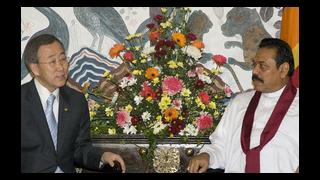
The International Court of Justice (ICJ) – the principal judicial organ of the United Nations – has played a prominent role in international law since it received its first case in 1947. Established at the same time as the UN to replace the League of Nations’ Permanent Court for International Justice, the ICJ settles, in accordance with international law, legal disputes between states.
In recent years, as a result of decades of increasing interest among the international community in international criminal justice, the ICJ appears to have been overshadowed by the much newer and arguably more high-profile International Criminal Court (ICC).
In the aftermath of the Nuremberg and Tokyo war crimes trials that followed the Second World War, and then particularly during the conflicts in Rwanda and the former Yugoslavia, the international community recognised a need to create a permanent international criminal court to try individuals responsible for international crimes. Driven by the determination to end impunity for these crimes, the Rome Statute of the ICC was adopted in 1998.
Since then, some have come to question whether the ICJ, which was for many years one of the few players on the international judicial stage, continues to play an important role as the leading adjudicator in the international community.
In international law there exists various mechanisms for peaceful settlement of disputes, including both legal and diplomatic means (see box), but despite this, the ICJ’s caseload seems to be increasing rather than diminishing. The most common subject matter of contentious cases brought before the Court concern territorial sovereignty, particularly land and maritime boundaries. Currently, the ICJ is deliberating upon:
• a dispute between Peru and Chile regarding a maritime boundary delimitation;
• a dispute between Australia and Japan regarding whaling in the Antarctic; and
• a Cambodian request for the interpretation of an ICJ judgment in 1962 on a dispute between Cambodia and Thailand concerning sovereignty over the region of the Temple of Preah Vihear.
An important recent example of the ICJ’s successful resolution of a dispute is the case between Belgium and Senegal concerning questions on the obligation to prosecute or extradite. In this case, Belgium claimed that Senegal failed to comply with its obligation under the Convention against Torture and Other Cruel, Inhuman or Degrading Treatment or Punishment to either prosecute or extradite Hissène Habré. The former president of Chad, who is accused of committing war crimes during his 1982– 90 presidency, fled to Senegal in 1990.
In 2012, the ICJ, whose rulings are binding on the disputing parties, ruled that Senegal must either prosecute or extradite Habré “without further delay”. Senegal, on the basis of an agreement with the African Union, established Extraordinary African Chambers within its domestic judicial system and on 30 June 2013, arrested Habré, who has since been charged with war crimes, crimes against humanity and torture.
 The ICJ remains a very useful mechanism for the settlement of disputes for a number of reasons. For example, the ICJ considers its primary task to be resolving disputes and finding compromises, thus encouraging parties to comply with its judgments. At the same time, the ICJ’s judgments carry with them significant weight: under the UN Charter, if a state party fails to comply with an ICJ ruling, the Security Council may take measures to give effect to and enforce that ruling.
The ICJ remains a very useful mechanism for the settlement of disputes for a number of reasons. For example, the ICJ considers its primary task to be resolving disputes and finding compromises, thus encouraging parties to comply with its judgments. At the same time, the ICJ’s judgments carry with them significant weight: under the UN Charter, if a state party fails to comply with an ICJ ruling, the Security Council may take measures to give effect to and enforce that ruling.
The ICJ also gives advisory opinions requested by the UN’s principal organs and specialised agencies. Recent notable examples include the ICJ’s 2004 opinion that construction by Israel of a wall in the Occupied Palestinian Territory, and its associated regime, were contrary to international law. In 2010, the ICJ produced an opinion that the adoption of the unilateral declaration of independence in respect of Kosovo in 2008 did not violate any applicable rule of international law.
Although these advisory opinions are not legally binding, they are considered to be the authoritative pronouncements on legal issues of the principal judicial body of the UN.
With its leading authority as the “world court” and its rich jurisprudence it seems likely that the ICJ will remain the appropriate forum for the peaceful settlement of inter-state disputes and will continue to provide the UN with an important advisory function.
Dr Miša Zgonec-Rožej is an associate fellow at Chatham House and a teaching fellow at the School of Oriental and African Studies, University of London. She was formerly a legal assistant at the International Court of Justice.
Photo: © UN Photo/ICJ. The inaugural session of the International Court of Justice on 18 April 1946, at the Peace Palace in The Hague.

















